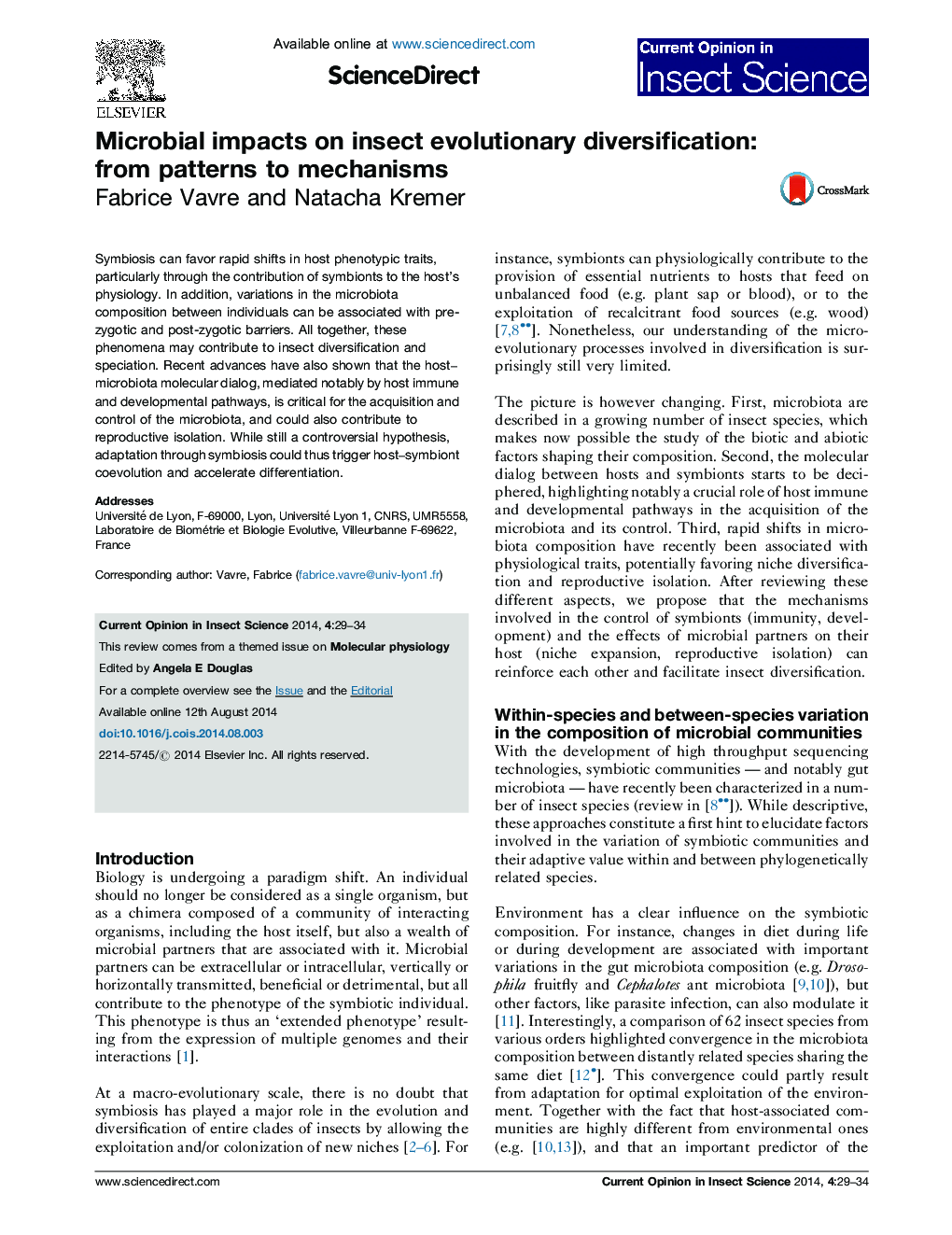| Article ID | Journal | Published Year | Pages | File Type |
|---|---|---|---|---|
| 4508285 | Current Opinion in Insect Science | 2014 | 6 Pages |
•Symbiotic communities in insects are shaped by host and environmental cues.•Recruitment and control of symbionts involve host immunity and development.•Symbionts can affect host niche exploitation and modulate pre-mating isolation.•Host–symbiont coevolution can lead to specificity and trigger post-mating isolation.
Symbiosis can favor rapid shifts in host phenotypic traits, particularly through the contribution of symbionts to the host's physiology. In addition, variations in the microbiota composition between individuals can be associated with pre-zygotic and post-zygotic barriers. All together, these phenomena may contribute to insect diversification and speciation. Recent advances have also shown that the host–microbiota molecular dialog, mediated notably by host immune and developmental pathways, is critical for the acquisition and control of the microbiota, and could also contribute to reproductive isolation. While still a controversial hypothesis, adaptation through symbiosis could thus trigger host–symbiont coevolution and accelerate differentiation.
Graphical abstractFigure optionsDownload full-size imageDownload as PowerPoint slide
